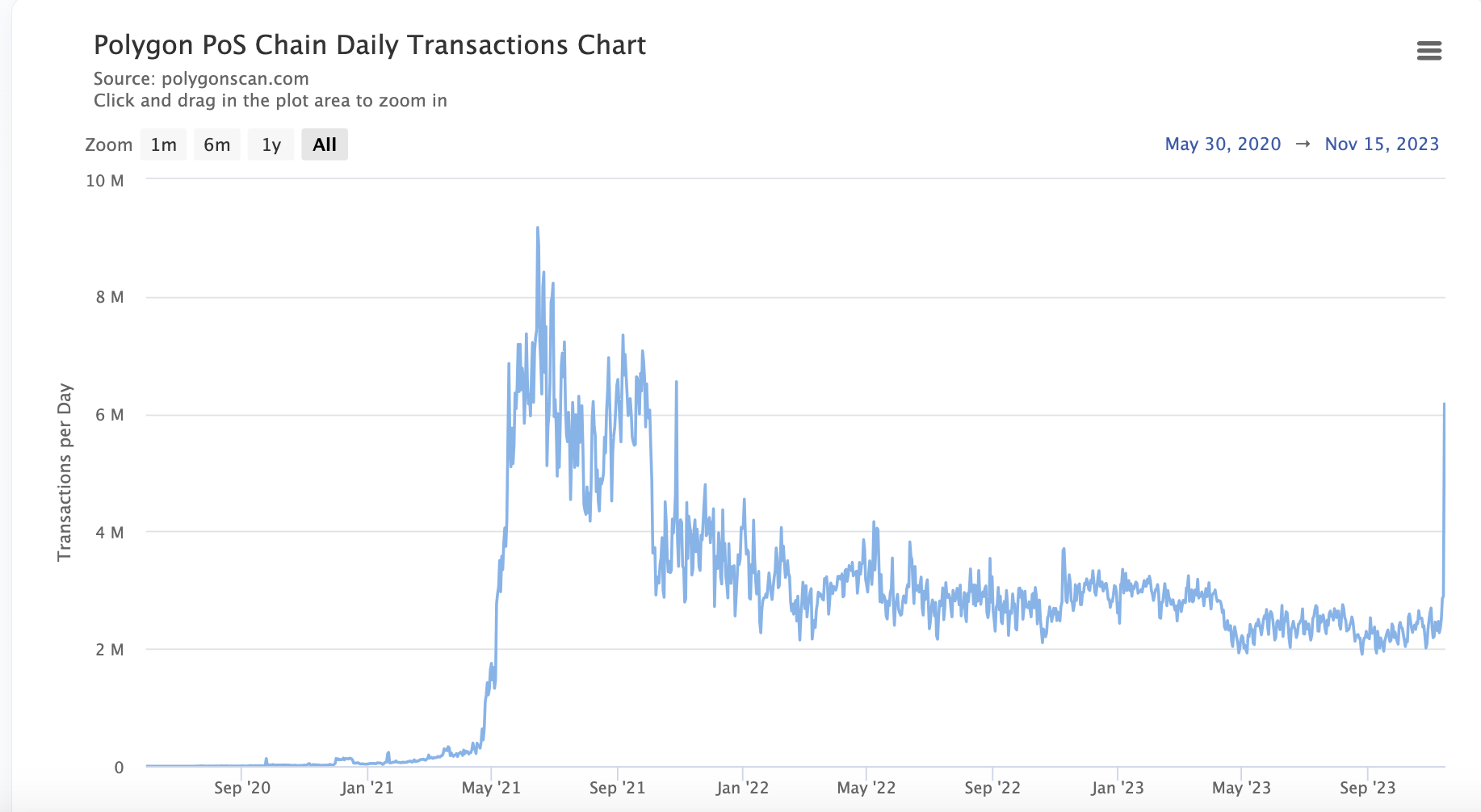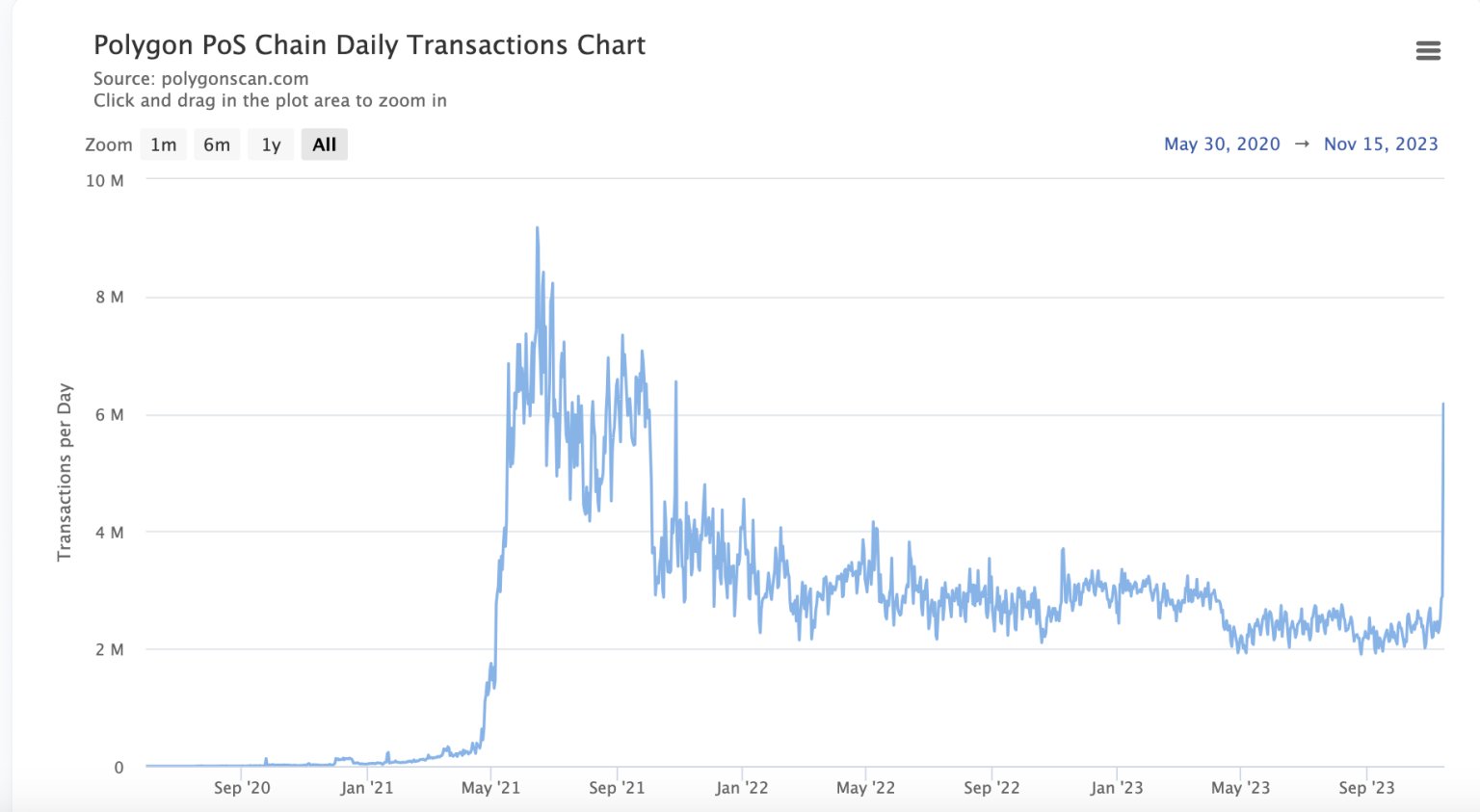The Polygon network, a widely-used Ethereum sidechain, has experienced a record-breaking surge in daily transactions, leading to a significant increase in gas fees over the last 24 hours.
Activity on the network has escalated dramatically, with transaction numbers soaring from 2.89 million to a historic high of 6.1 million from November 14 to November 15, the most since October of the previous year. This rise in network usage has precipitated a spike in transaction costs, with average transaction costs rising to over 7,000 Gwei (from 100 Gwei a day prior), before reducing to around 400 Gwei, according to Polygonscan.
The heightened costs for transactions, especially token swaps on the blockchain, rose as high as $5 for swaps, which was a massive increase from the usual rates on the network. This has now come down to under $0.50.
Yet even during the transaction fee surge, the cost of transactions on the Polygon network remained lower than the Ethereum mainnet, where the cost of token swaps can range from $30 to $50.

Polygon PoS Chain Daily Transactions | Source: Polygonscan
A Polygon contributor said that the activity can be attributed to a new type of tokens referred as “PRC-20,” an Ordinals-inspired token standard on Polygon. Users have been minting PRC-20 tokens named POLS en masse, data shows. These tokens are created using transactional calldata on the Polygon blockchain instead of the normal ERC-20 token standard.
The mechanism was inspired from Ordinals, a protocol designed for generating tokens and NFTs on the Bitcoin network. It involves a process known as “inscription,” which assigns data to individual satoshis across the Bitcoin network. However, Polygon-based PRC-20s adopt a different strategy, utilizing transaction calldata to generate tokens or unique NFT-like image artifacts that are embedded within the network transactions.
Developers have previously launched tokens on the Ethereum mainnet in June by leveraging a similar Ordinals-inspired protocol called Facet.


